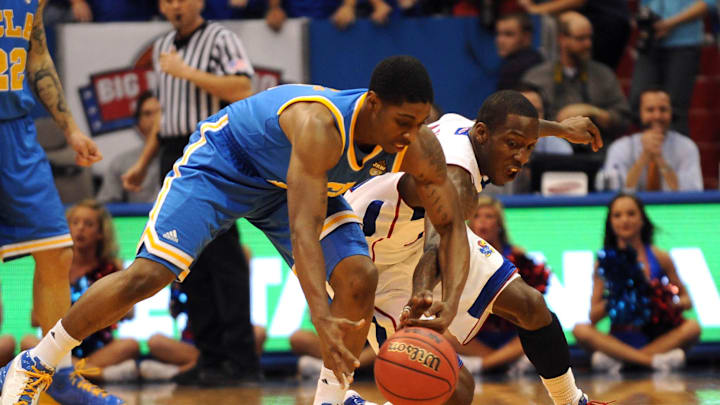After ranking Michigan State, Villanova, and Indiana in part one of our college basketball "Blue Blood" basketball rankings, here is a look at where the remaining six rank in 2024.
Kansas Jayhawks
Kentucky Wildcats
North Carolina Tar Heels
Connecticut (UConn) Huskies
UCLA Bruins
Duke Blue Devils
Objectives and Scoring System for these rankings
60 points for National Championships since 1960.
50 points for National Championships before 1960.
40 points for Final Four Appearances starting in 1960.
30 points from Final Four Appearances before 1960.
25 points for Regular Season Conference Championships since 1950.
15 points for conference tournament championships since 1990.
10 points for Elite Eight appearances.
8 points for appearances in Sweet Sixteen.
6 points for every season with 30 or more wins since 1970.
4 points for every season with twenty or more victories since 1970.
2 points apiece for each NCAA Tournament berth.
The unwavering pursuit of national championships and final four appearances by renowned collegiate basketball programs, also known as "blue bloods," sets them apart from other schools. These programs have a distinguished pedigree, a devoted following, and a remarkable capacity to draw exceptional talent nationwide through their strategic recruitment initiatives and NIL collectives.
A basketball program characterized by a history of accomplishments on the basketball court and a consistent record of NCAA Tournament appearances and conference championships is typically called a "blue blood" program.
A select few programs possess a profound history, highlighting esteemed coaches, players, and competitors, so emphasizing the remarkable legacy they have established.
These esteemed college basketball programs are recognized for their vibrant and committed student communities, cultivating an environment that can be daunting for opposing teams when playing on their home court.
These programs can attract the most gifted high school seniors and top transfers, consequently re-establishing themselves for future success through their recruitment initiatives.
Historic venues, abundant in character, can offer an ideal backdrop for these prestigious programs, helping them stand out from other good college basketball programs.
For example, the UCLA Bruins excelled in collegiate basketball during the 1960s and 1970s, mostly due to Coach John Wooden's remarkable leadership. The Bruins have attained ten national championships in under twelve years. That stretch of success in college basketball by UCLA had not been replicated, and thus is why UCLA is considered one of the top-tier blue blood programs.
Now let's take a look at the top six blue blood college basketball programs in 2024.
